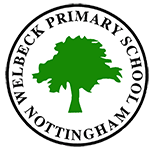At Welbeck Primary, we deliver a high-quality science curriculum which provides the foundations for understanding the world, beginning with EYFS and progressing through to Year 6. Children are taught the key knowledge, concepts and vocabulary in each area of the curriculum, allowing them to develop a sense of wonder and curiosity about the world and natural phenomena around them.
In the EYFS, science is included within the Understanding the World area of learning. As with other learning in Reception, children mainly learn about science through games and play – which objects float and sink during water play, for example. Activities such as these will develop important skills such as observation, prediction and critical thinking.
The content of science teaching and learning is set out below; certain topics and areas are repeated across year groups, meaning that children may revisit a particular topic in each year of primary school but with increasing difficulty and with a different focus, ensuring progression. Science is delivered on a two-year rolling curriculum.
KS1
- Year 1– Plants , Animals including humans, Everyday materials, Seasonal changes.
- Year 2 – Plants, Animals including humans, Use of everyday materials, Living things and their habitats
LKS2
- Year 3 – Plants, Animals including humans, Rocks, Light, Forces and magnets
- Year 4 – Animals including humans, Living things and habitats, States of matter, Sound, Electricity
UKS2
- Year 5 – Animals including humans, Living things and their habitats, Properties and changes of materials, Forces, Earth and Space
- Year 6 – Animals including humans, Living things and their habitat, Light, Electricity, Evolution and inheritance
Alongside these areas runs the Working Scientifically element. This focuses on the skills the children need to become accurate, careful and confident practical scientists. Children are expected to master certain skills in each year group and there is a very clear progression of these set out. For example, in Year 1 a child may have to ask question and carry out a simple test, whereas by Year 6 they should be able to plan and carry out a fair test by using equipment accurately and taking exact readings.
Children take part in weekly lessons, with a particular focus each half-term. We are proud of the fact that children also have access to high-quality science books and ‘investigation stations’ within their classrooms, to further develop their passion for Science learning. In addition to weekly lessons, all children in school participate in practical experiments termly, as well as annual events, such as British Science Week, Women in Science day and the Children’s University programme where we host a variety of speakers who deliver interactive, practical workshops to further enrich the curriculum.

